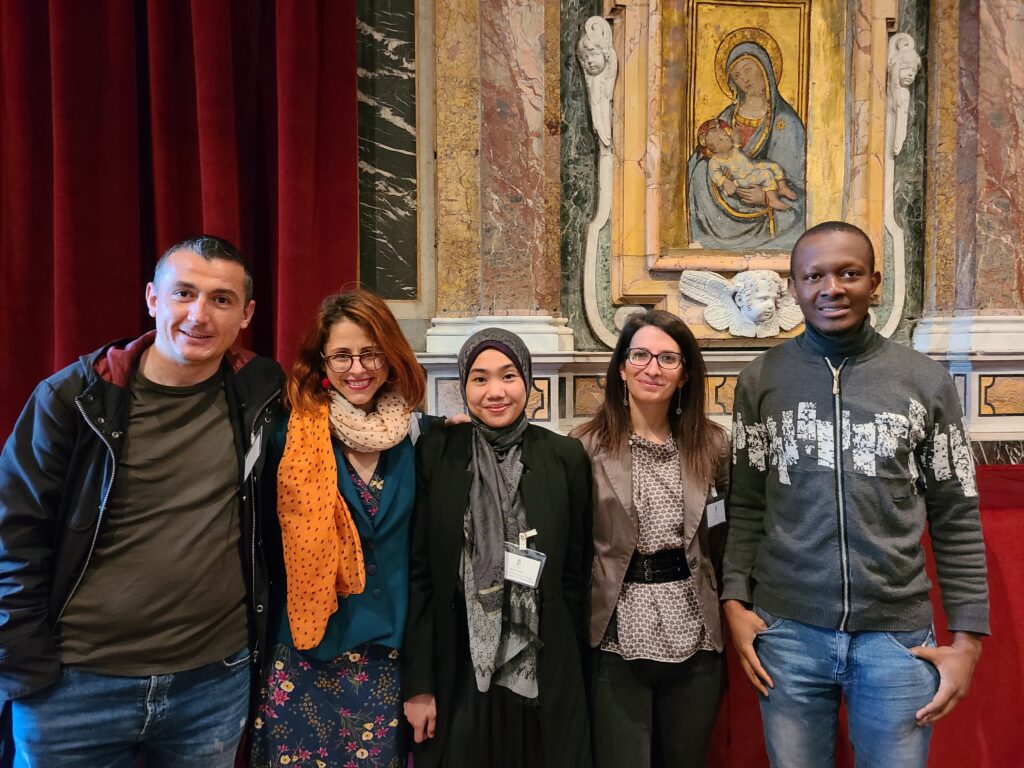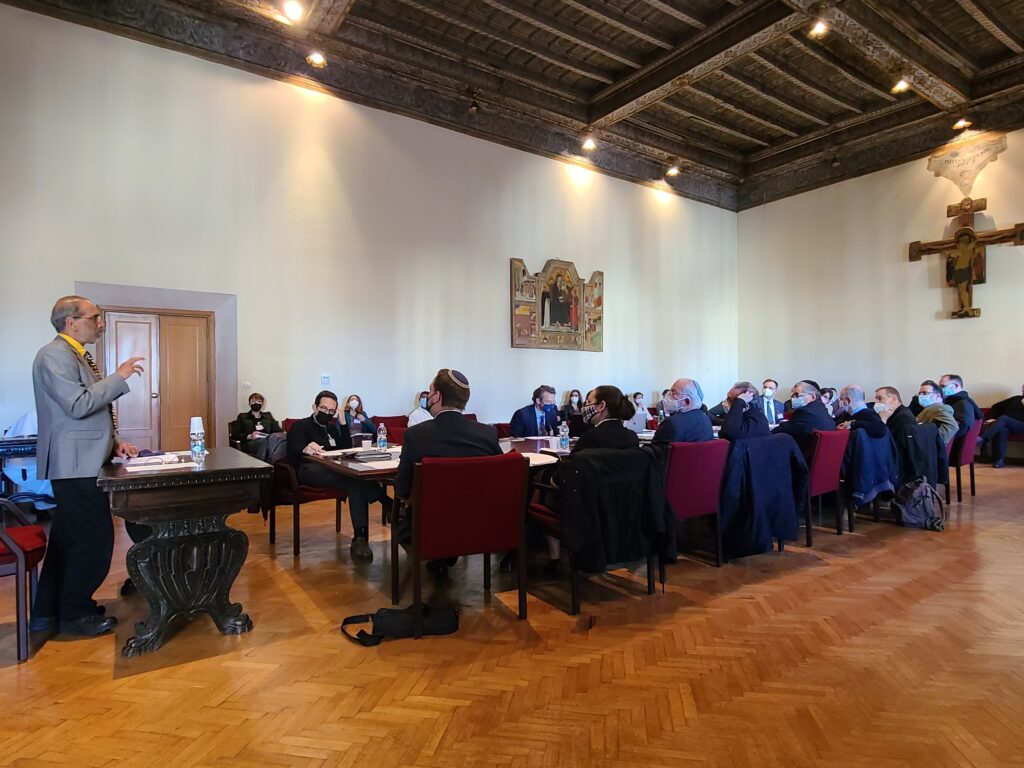On April 4-6, Rome hosted an international conference “Next Steps in the Jewish-Catholic Dialogue” co-sponsored by the Angelicum Thomistic Institute and Cardinal Bea Centre for Judaic Studies. The conference included two evening public lectures and two days of round-table discussions between leading Jewish rabbis and Christian scholars from Europe, Israel, USA, and Canada. The debates were dedicated to Jewish and Christian reflections on the Holy Land, the state of Israel, and possibilities for future dialogue.
The moderated discussions gave the chance to hear diverse voices and opinions coming from within the Christian and Jewish communities shading the light on different perspectives towards the same theological questions, in particular the interpretation of God’s covenant with Israel and the claim of the promised land.
Some of our Fellows had the possibility to join the whole event, both public and closed-door discussions. Meilia Irawan, a Muslim Russell Berrie Fellow from Indonesia, says about her participation in the event: “Honestly, I am very lucky to witness this conference between Christian and Jewish theologians. The meeting was very effective and all of the participants were experts in the field mastering their understanding of each other’s interpretation of the Holy Land, God’s covenant, and the future of the Israel-Palestine conflict.” Meilia adds, “This is not just a conference, there is a purpose for the future of the promised land. We hope peace will be restored as the best solution.”

During the round table discussion, Rabbi Eugene Korn, National Director of Interfaith Affairs at the Anti-Defamation League, Israel, rightly pointed out, “The best theology is the one which helps to make the world a better place.” Indeed, any theoretic approach to theological issues should be ready to be applied in dialogical practice. Rabbi David Meyer, lecturer at the Cardinal Bea Centre, aptly mentioned that not only theology but also politics brought the participants and attendants to the conference. In his presentation on creating a Halakhic language of peace, Rabbi Meyer claimed that if there is a political will to achieve peace, it should be done through language. He continued explaining the hermeneutical dynamics of the language, theology, and politics: “Language is a shaper of thoughts and, thus, theology. We have to work together to create a theological language of peace.”
Reflecting on the participation in the conference, Rev. Evans Nyamadzawo, a Russell Berrie Fellow from Zimbabwe, says: “Over the past months, I have been learning tools for interreligious dialogue, and attending this Jewish-Catholic Dialogue event gave me a first-hand experience of interfaith relations.” He continues, “It was great to hear from well-renowned scholars from both sides and see how their researches complemented each other. The atmosphere was so friendly that it made me see the possibility of a fruitful dialogue.” Rev. Evans also shares an insight that he picked from the conference, “When Abraham was given the land, he shared the land, and hence, this opens an avenue for coexistence between the Israelis and Palestinians on the same land.”

